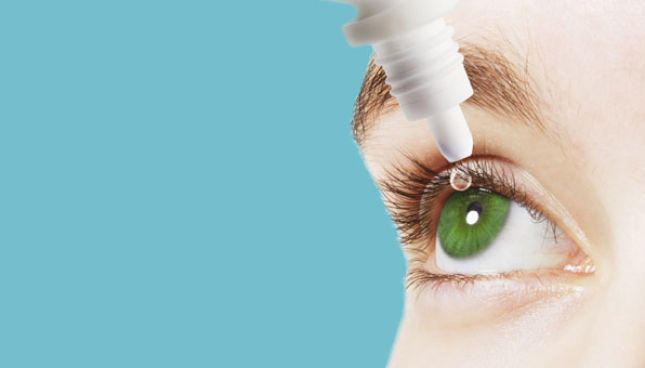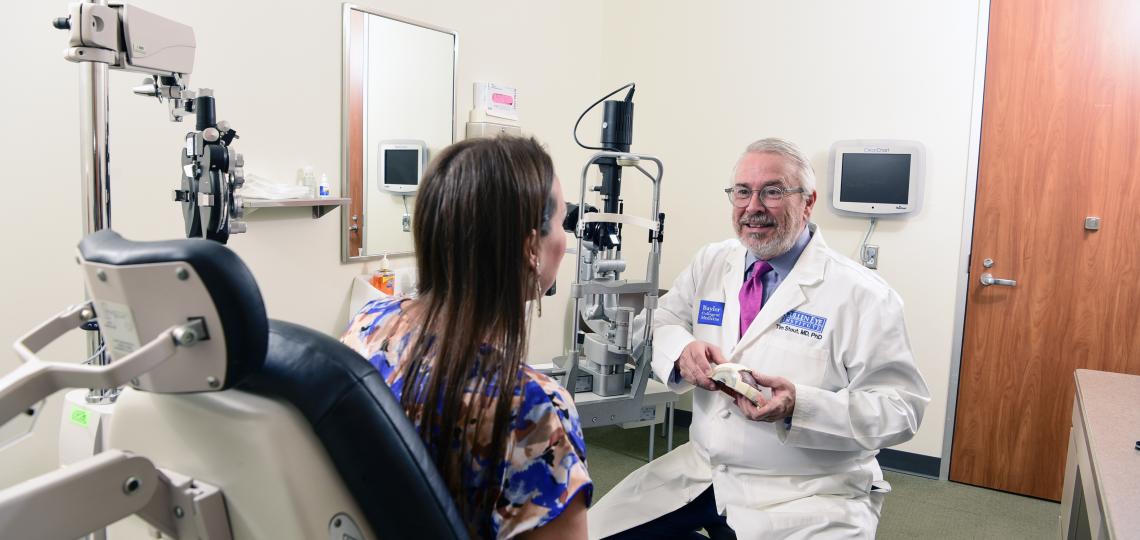Pediatrics in Andalusia: Compassionate Look After Growing Family Members
Pediatrics in Andalusia: Compassionate Look After Growing Family Members
Blog Article
Is Refractive Surgical Procedure Right for You? Factors to Think About for Better Eyecare
In the world of eye care, the decision to undertake refractive surgical procedure is a significant one that demands thoughtful factor to consider. As people look for quality and freedom from the restrictions of rehabilitative lenses, many variables come right into play when figuring out the viability of such a treatment. From the ins and outs of one's ocular health to the complexities of individual assumptions and day-to-day practices, each facet holds importance in the more comprehensive landscape of refractive surgical treatment candidateship. By examining these crucial elements with care and precision, a clearer course towards educated decision-making emerges.
Eye Wellness Examination
When thinking about refractive surgery, an extensive eye health assessment is critical to evaluate the suitability of the treatment for every person. eye center andalusia. This examination involves a collection of examinations and evaluations carried out by an eye care specialist to figure out the total wellness of the eyes, the presence of any type of underlying conditions, and the stability of the refractive mistake
During the assessment, numerous variables are thought about, such as the patient's case history, present eye prescription, corneal density, pupil size, and tear film high quality. These evaluations aid to recognize any kind of contraindications to refractive surgery, such as corneal problems, cataracts, or untreated eye infections. Additionally, the examination helps to manage patient expectations relating to the prospective end results of the surgical treatment based upon their unique eye attributes.
Ultimately, the eye health and wellness evaluation is vital in making certain the safety and performance of refractive surgical procedure, as it offers valuable understandings into the person's eye health status and helps establish the most appropriate therapy options for attaining optimum aesthetic results. (neurologist andalusia)
Lifestyle Assessment
A complete way of living assessment is indispensable in figuring out the suitability of refractive surgical procedure for a person's aesthetic correction requirements. Way of living aspects such as profession, hobbies, and daily activities play an essential role in the decision-making process concerning refractive surgery.
Furthermore, way of living practices such as sports engagement, outside activities, or even skin care routines can influence the recovery process and general success of refractive surgery. For instance, people that engage in contact sports may need to take extra precautions to safeguard their eyes during the recuperation duration. In addition, people with substantial sunlight exposure may call for additional post-operative like avoid issues. By carrying out an extensive way of life analysis, eye care professionals can customize their suggestions and therapy strategies to fulfill the one-of-a-kind requirements of each patient, inevitably leading to improved visual end results and satisfaction.
Expectation Alignment

Individuals need to understand that while several individuals accomplish 20/20 vision or much better adhering to refractive surgery, some might still require glasses for specific tasks like reading or driving at night. Managing these assumptions assists avoid frustration and dissatisfaction post-surgery, leading to a much more favorable overall experience for the individual.
Risk Evaluation

Aspects that might increase the danger of difficulties include age, particular medical conditions like autoimmune illness, unsteady vision prescription, slim corneas, and unrealistic individual expectations. Additionally, selecting a seasoned and proficient surgeon, complying with pre and post-operative care guidelines carefully, and divulging any type of relevant medical history can help alleviate threats.
To decrease the chance of issues, ophthalmologists carry out thorough pre-operative analyses to recognize any type of contraindications to surgery. They additionally discuss the potential threats and benefits with people throughout the consultation procedure. By participating in open communication and shared decision-making, both the patient and the ophthalmologist can interact to identify if refractive surgical treatment is the appropriate choice based upon private threat profiles and wanted end results.
Assessment Value
Thinking about the crucial duty of educated decision-making in analyzing threats and possible problems in refractive surgical procedure, the appointment process holds substantial value in leading patients in the direction of ideal end results. Throughout the assessment, the ophthalmologist evaluates the client's eye health and wellness, refractive errors, and total viability for surgical treatment. This first analysis is important in establishing one of the most suitable procedure for each and every person, taking right into account aspects such as corneal thickness, pupil dimension, and existing eye conditions.
Moreover, the appointment functions as a chance for patients to discuss their expectations, concerns, and any kind of inquiries they might have concerning the surgery. Our site Clear interaction in between the person and the doctor is vital to make certain realistic expectations and a complete understanding of the prospective dangers and benefits entailed.
Additionally, the appointment permits the surgeon to discuss the different surgical alternatives offered, their corresponding outcomes, and the post-operative care required. This detailed conversation equips people to make educated choices about their eye treatment, bring about far better contentment and end results post-surgery.
Final Thought
In conclusion, individuals taking into consideration refractive surgical procedure needs to undergo a thorough eye health and wellness analysis, assess their lifestyle practices, straighten their expectations with possible end results, assess the involved dangers, and prioritize assessments with eye treatment experts. These elements play a vital duty in identifying the viability of refractive surgical treatment for every person, making sure ideal end results and satisfaction with the procedure.
People taking into consideration refractive surgical procedure often have high expectations relating to the results, expecting excellent vision without the requirement for glasses or get in touch with lenses. While refractive surgery can greatly enhance vision and minimize reliance on visual aids, it is essential for people to comprehend that outcomes might differ based on specific factors such as the degree of refractive error, corneal thickness, and overall eye wellness.
By involving in open interaction and shared decision-making, both the person and the eye doctor can work together to figure out if refractive surgical procedure is the right choice based on individual threat accounts and desired results.
Thinking about the essential function of educated decision-making in examining risks and possible complications in refractive useful content surgical treatment, the assessment procedure holds substantial significance in guiding clients towards optimum outcomes. During the consultation, the ophthalmologist examines the patient's eye health and wellness, refractive mistakes, and general suitability for surgery.
Report this page